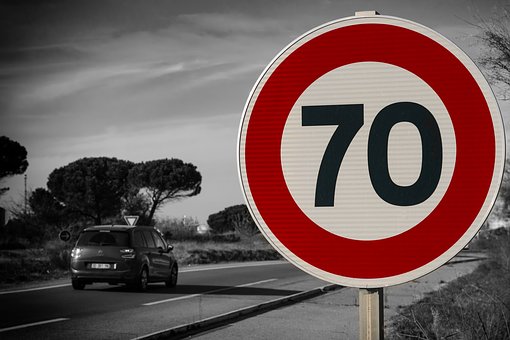IT IS INEVITABLE THAT the increasing data collection systems being built into modern cars will be used by anyone who can see a profit in it.
New research by Parkers.co.uk, a British website for car buyers, has revealed that although many new cars come with data-logging capability, 75 percent of drivers don’t want these systems in their cars, especially if they could affect things like insurance premiums.
The research from Parkers.co.uk comes after an investigation into car company use of behaviour data. This revealed that car companies share anonymised behavioural data about its customers, like where they go and their driving style, with third party data companies.
Just 10 percent of people polled knew their car had a data agreement in place already, and of them, only 19 percent of those people confessed to reading it. In addition, a whopping 86 percent of people would not be happy for their car to share driving habit data with third-party companies.
Parkers is running a campaign to make it easier for drivers to opt out of data agreements, and for it to be more obvious in the first place that your car is collecting this information in the first place – and why.
What is a data agreement?
Broadly it means agreeing to how and where your data can be shared. If you use Google you’ll have signed one before.
New cars with connected services (an internet connection or an app) will have you sign up for agreement. Generally, it involves agreeing to share data about you and the car with the manufacturer, and certain third-party companies.

What data does your car collect?
This depends on what car you have, as well as how old the car is. If you can operate functions on your car (like the locks or the heating) via an app on your phone, or the car has an inbuilt sat-nav it can most likely collect data on you.
Common data collection from cars include:
- Location information such as where you’ve been
- Driver behaviour data such as how hard you brake
- Personal information, for instance, when you purchased your car
- Marketing information, for example, when your PCP agreement is due to end
What does the future hold?
A few car makers have add-ons you can buy from inside of the car. Expect this to become the norm in the future. For instance, Skoda Octavia SE customers have the option of upgrading to auto-dip headlights for a one-off payment (in the UK, £179). This includes unlimited access to the feature and is transferable from owner to owner. The software and hardware are installed into the vehicle, including the buttons needed to operate it, but it requires a further payment from inside the car to work.
Buying from behind the wheel looks set to become even more lucrative with autonomous cars. The Polestar 2 was the first car to have Google’s Android OS natively plumbed into it. Polestar’s website mentions that thanks to Android Automotive OS being native, the Polestar 2 ‘will soon be a shop you can buy things in.’
Mark Aryaeenia, CEO of vehicle data company, Verex, told Parkers, “Car companies are thinking far ahead into the future. For instance, an autonomous car has a captive audience. Imagine the e-commerce opportunities it has.”

What does this mean for you?
A high percentage of people don’t want their data being collected. But a low number of people understand what data is being collected. The research from Parkers shows that regular car buyers don’t like the idea of car manufacturers profiteering from their untapped behavioural data, and that they don’t like being kept tabs on.
It also shows that car manufacturers can share data because people agree to their data being shared, but 81 percent of people haven’t read the user agreements they sign up to.
Parkers.co.uk editor, Keith Adams, says, “It’s true that we’re agreeing to all manner of terms and conditions daily – I shudder to think what Google knows about me – but it comes as a surprise to see so few drivers are aware of what their cars knows about them. It suggests that carmakers need to make their data gathering more transparent, their agreements easier to read for the 75 percent of drivers who currently don’t want it.”
What Parkers would like to see
While there’s undoubtedly a benefit to the driver in having all this data gathered, the fact that so few people are aware of this is concerning. Keith Adams added, “It’s a worry that only 19 percent of owners who know about their car’s data agreement have read them – we think it’s time that carmakers made these messages simpler and more prominent, and made opting out of this data capture process a simple click or press of a button.”
seniordriveraus has commented about this before. One of the many concerning issues with the collection of data from within cars is how often it is wrong. We can cite various examples of sat navs misreading speed limit signs, for instance. Often, the sensors pick up a speed sign on a slip road and then assume that is the limit on the motorway or freeway on which you are travelling. Until the sensors pick up the next sign, showing the correct speed limit, it (and the data it is collecting) assume that you are exceeding the speed limit, often by a considerable margin. We have even been in vehicles where the sensors have picked up a speed limit sign (on the back of a bus, for example) telling you to travel at 25km/h past it when stationary. The sensors read this and then report that you should be travelling at 25km/h even when the prevailing speed limit is 60, 80 or even 110km/h. The same applies to speed zones where the limit is applied only during certain times (school zones, for instance). Imagine how an insurance company would react to that data. Or how it would be used against you if you were involved in a collision. And imagine a situation where speeding and other traffic offences are recorded by in-car systems and then reported back to a central body for expiation notices and other penalties to be applied. How would you argue your innocence?
As with so much technology, the ramifications are almost endless.
